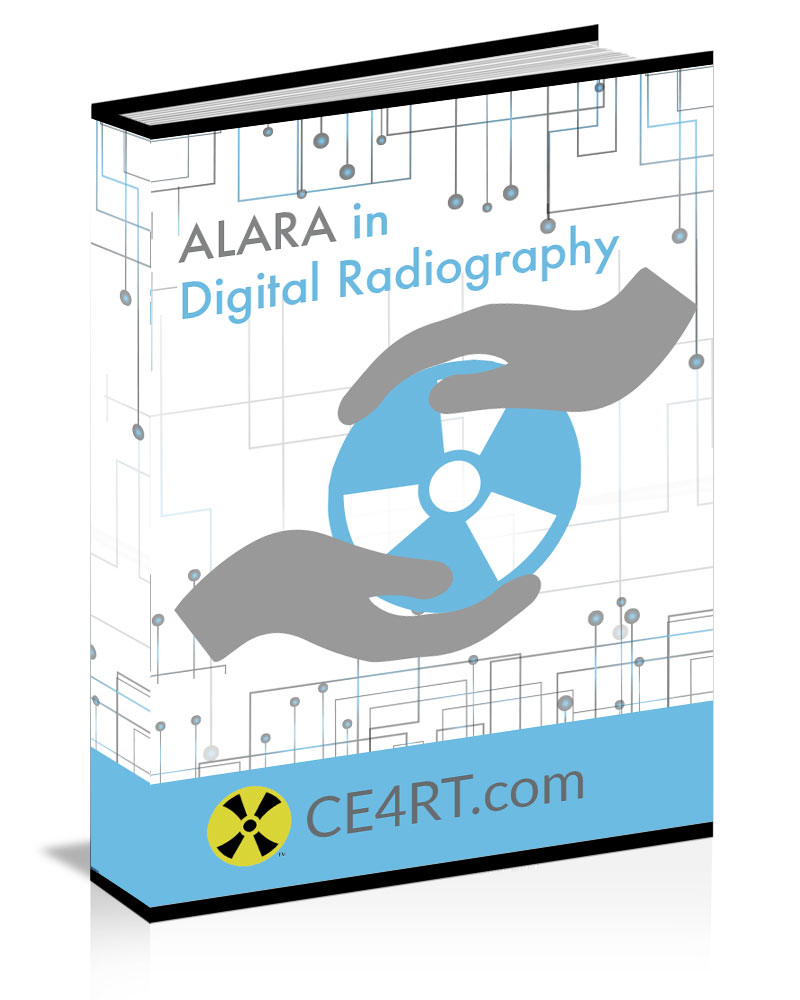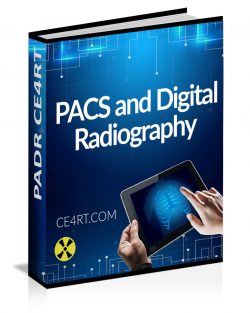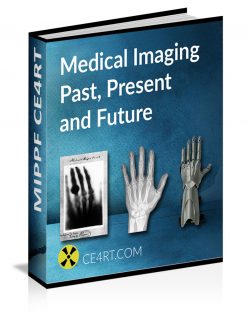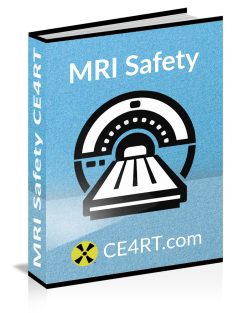Description
Get 4 digital radiography CE Credits now. Guaranteed**.
1 Select a Course and Check Out
2 Download the e-book
3 Pass the online test and get your certificate
Of course you want your digital radiography exams to have a dose that is “as low as reasonably achievable”. (ALARA) This mobile friendly online course discusses best practices in regards to radiation protection for patients and staff when using digital radiography equipment. This course meets California requirements for digital radiography continuing education credits and is also good in all 50 states for general radiography or radiation protection credits and with ARRT® for category A credits.
Course Outline
Measuring Radiation
Sources of Radiation, Production of X-Rays, Radiation Measurements and Units, Radiation Exposure
Absorbed Dose, Equivalent Dose, Effective Dose, Collective Dose, Committed Dose
Biological Effects of Ionizing Radiation
Deterministic Effects, Stochastic Effects, Heritable Effects
Fundamentals of Digital Radiography
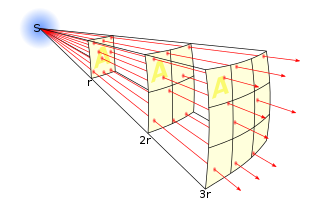
Digital Radiography and Image Quality, Uberschwinger, Overexposure and Underexposure Artifacts, Calibration Mask Artifacts, RF Interference, Lag and Ghosts, Scatter Artifacts, Dead Pixels, Image Noise, Gaussian Noise, Salt and Pepper Noise, Shot Noise, Quantization Noise, Film Grain, Low Signal Noise, Degradation in DR Devices, Temperature Effect on DR Technologies
Patient Radiation Safety in Digital Radiography
Patient Radiation Exposure, Digital Radiography and Patient Dose, Dose Creep, Exposure Index,
Technique Protocols, Best Practices for Digital Radiography, Special Considerations, Pre-Exam Best Practices, Screening for Pregnancy, Patient Positioning and Immobilization, Best Practices During Image Acquisition, Inverse Square Law, Exposure Factors: High kVp Low mAs, Receptor Sensitivity,
Beam Filtration, Beam-Limiting Devices / Collimation, Shielding, Anti-Scatter Grids, Best Practices for Pediatric Patients, Best Practices During Image Critique, Best Practices After Exam Completion
Radiation Safety for Staff
Staffing and Training, Staff Communication, Communicating Radiation Risk to Patients, Time Distance and Shielding, Radiation Protection in the OR, Radiation Safety for the Pregnant Technologist, Classification and Areas of Work, Occupational Radiation Dose Limits, Occupational Dose Reporting, Radiation Monitoring Devices, Personal Dosimeters, Shielding for Occupational Radiation Protection, Architectural and Equipment Mounted Shielding, Half-Value Layer, Personal Protective Equipment, Equipment Safety Features, Positive Beam Limitation, Filtration, Control Console, Automatic Exposure Control, Anti-Scatter Grid, Examination Table, Emergency Stop Button, Modality-Speciffc Safety Features, Equipment Safety Regulations, Safety Checklist For Digital Radiography
Radiation Safety Program
Staffing and Training, Staff Communication, Technology, Time Distance and Shielding, Radiation Protection in the OR, Radiation Safety for the Pregnant Technologist, Occupational Radiation Dose Limits, Occupational Dose Reporting, Personal Dosimeters, Shielding for Occupational Radiation Protection, Architectural and Equipment Mounted Shielding, Half-Value Layer, Personal Protective Equipment
ARRT®* STRUCTURED EDUCATION CREDIT DISTRIBUTION FOR THIS COURSE.
| DISCIPLINE |
MAJOR CONTENT CATEGORY & SUBCATEGORIES |
CE CREDITS PROVIDED |
|
|
|
| RAD – 2017 |
Image Production – Image Acquisition and Technical Evaluation |
0.75 |
|
Image Production – Equipment Operation and Quality Assurance |
0.75 |
|
Safety – Radiation Physics and Radiobiology |
0.50 |
|
Safety – Radiation Protection |
2.00 |
|
|
|
| RAD – 2022 |
Image Production – Image Acquisition and Evaluation |
0.75 |
|
Image Production – Equipment Operation and Quality Assurance |
0.75 |
|
Safety – Radiation Physics and Radiobiology |
0.50 |
|
Safety – Radiation Protection |
2.00 |
|
|
|
| CT – 2017 |
Safety – Radiation Safety and Dose |
2.00 |
| CT – 2022 |
Safety – Radiation Safety and Dose |
2.00 |
|
|
|
| BD – 2016 |
Patient Care – Patient Bone Health, Care, and Radiation Principles |
1.00 |
| BD – 2022 |
Patient Care – Patient Bone Health, Care, and Radiation Principles |
1.00 |
|
|
|
| NMT – 2017 |
Safety – Radiation Physics, Radiobiology, and Regulations |
2.00 |
| NMT – 2022 |
Safety – Radiation Physics, Radiobiology, and Regulations |
2.00 |
|
|
|
| MAM – 2016 |
Image Production – Equipment Operation and Quality Assurance |
1.00 |
| MAM – 2020 |
Image Production – Image Acquisition and Quality Assurance |
1.00 |
|
|
|
| CI – 2017 |
Image Production – Image Acquisition and Equipment |
2.00 |
| CI – 2023 |
Image Production – Image Acquisition and Equipment |
2.00 |
|
|
|
| VI – 2017 |
Image Production – Image Acquisition and Equipment |
2.00 |
| VI – 2023 |
Image Production – Image Acquisition and Equipment |
2.00 |
|
|
|
| RA – 2018 |
Safety – Patient Safety, Radiation Protection, and Equipment Operation |
4.00 |
| RA – 2023 |
Safety – Patient Safety, Radiation Protection, and Equipment Operation |
4.00 |
|
|
|
Understanding This Chart
This chart shows the credit distribution the ARRT®* has assigned to this activity. For R.T.s who are meeting their structured education requirements (ie. while pursuing a credential using the postprimary pathway) or as part of the continuing qualification requirements (CQR) process.
The code on the left shown in the DISCIPLINE column represents the ARRT®* content outline for the disciplines.
This chart may not show the total number of approved category A CE credits. The total number of CE Credits is in the headline at the top of this page.
What is the CQR process?
ARRT®*

The American Registry of Radiologic Technologists® (ARRT®*) accepts our courses for CE Credits.
TMB

The Texas Medical Board (
TMB) accepts our courses for Medical Radiologic Technologist Continuing Education.
FL DOH

The Florida Department of Health Bureau of Radiation Control (FLBRC) accepts our courses for Full and Limited RT CE.
CA DPH

The California Department of Public Health Radiologic Health Branch (
CARHB) accepts our courses for Radiologic Technologist CE.
ARDMS

The American Registry for Diagnostic Medical Sonography (ARDMS) accepts our courses for Ultrasound CME.
NMTCB

The Nuclear Medicine Technology Certification Board (NMTCB) accepts our courses for Nuclear Medicine CE Credits.
SDMS

The Society of Diagnostic Medical Sonography (SDMS) accepts this course for Ultrasound CME.
CAMRT

Our courses are recognized by Canadian provinces for Continuing Professional Development Credits / hours.
This CE course includes;
- The ability to Start Right Now, if you want you can finish and get your credits today
- Unlimited time to take the exam. You don’t have to finish today if you don’t want to.
- Work is saved as you answer each question online.
- The ability to log off and continue the online test whenever you like even from different devices.
- ASRT approved ARRT®* Category A Continuing Education Credits.
- No Faxing, No emailing back and forth, no paper.
- 100% paperless e course and reading material in the form of a pdf file e-book (not a paperback or hardcover book) that is;
- smartphone friendly
- pc friendly
- accessible
- searchable
- printable
- A Certificate of completion immediately downloadable after passing the test.
- The freedom to use different devices at different times during the same exam attempt.
- Phone, text, forum, and email support.
All available courses are approved by the ASRT for ARRT®* and every state’s Limited License Radiographer Continuing Education Credit.
How long will it take?
This is not a paperback or hardcover book. Nothing will come in the mail. This means you can start right now. Our courses follow ARRT®* Rules and are approved for the number of credits based on the amount of time it takes the reviewing body (ASRT) to read the entire reading material word for word and cover to cover. This time does not include taking the required post test. These requirements are followed for all reading material for all CE providers.
1 Credit = 1 Continuing Education Unit (CEU) = 1 Education Hour = 1 Credit Hour = 1 Hour of Reading
Many students are able to skim the material faster and search for the post test questions much more quickly than that, but the number of credits is a guideline for how many hours it will take to complete the course.
How many questions are in the test?
In order to get credit, the post test must follow ARRT®* CE rules. The rules were updated in 2016, and again in 2021. There are 8 questions for each 1 credit. So, a 1 credit course has 8 questions, a 4 credit course has 24 questions, and a 24 credit course has 192 questions. It may seem like a lot, but unfortunately it’s not our choice, this is the standard which all accredited CE providers must follow.
Our Guarantee.
** WE GUARANTEE YOU WILL GET …
– Credits that are accepted by any Radiologic Technologist, Nuclear Medicine, or Ultrasound registry in North America or US territories.
– A system that works with your smartphone and pc.
– Fast customer support if you need it.
– Electronic reading material that you can keep and share.
– An online post test that you can take from multiple devices.
– A printable hard copy of the post test for offline reference.
– A certificate of completion you can download immediately after passing the post test.
– A full refund within 30 days if you do not pass or are not satisfied for any reason.
– The lowest price with our Low Price Guarantee.
No other X-Ray CE provider offers you a guarantee like this. Try us today with no risk.
Accepted Everywhere, Guaranteed
All available courses are approved by the ASRT for ARRT® Category A CE Credit. The ARRT® accepts this approval. ALL US state agencies also accept this as approval for full and limited permit CE requirements. Most other registries in north america also accept this approval for RT and Ultrasound CE credits. Some states require specific subjects so check with your state agency.
This activity may be available in multiple formats or sold in different formats such as Google Play or Amazon. ARRT® regulations state “Lecture presentations, directed readings, home study courses, or Internet activities reported in a biennium may not be repeated for credit in the same biennium (effective January 1, 2016).”

